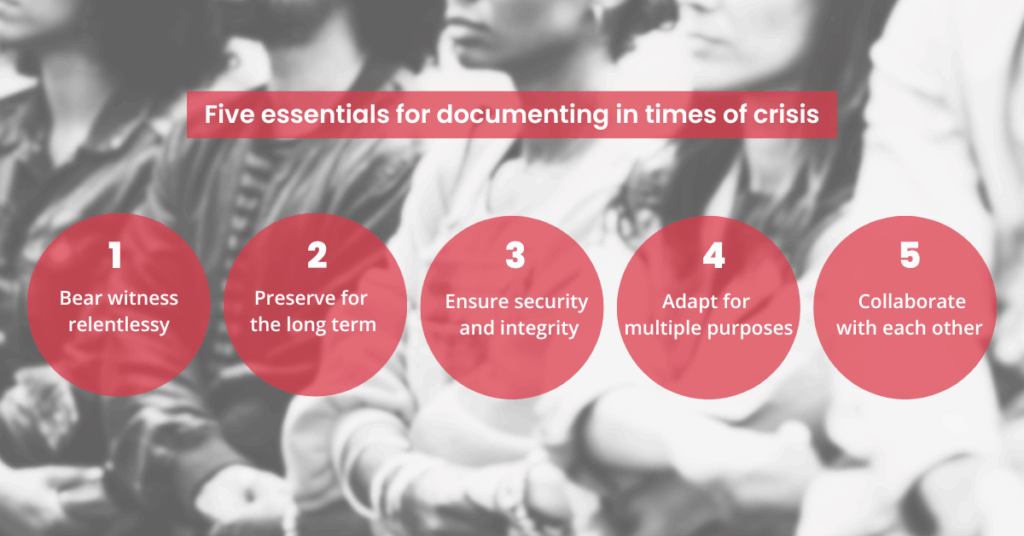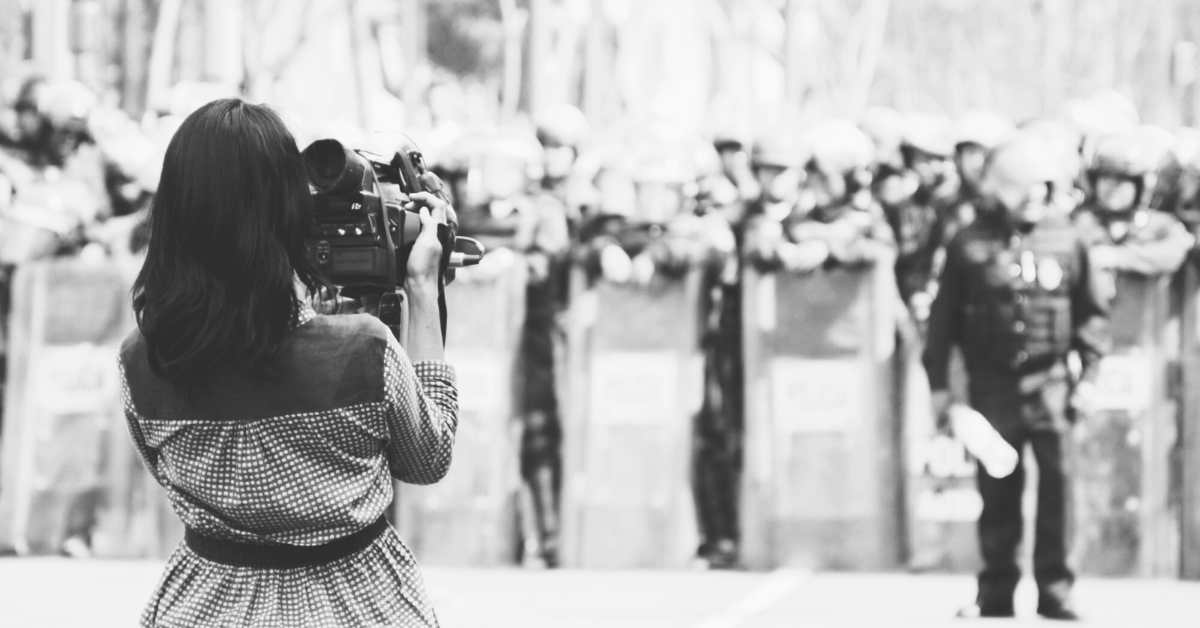Photo credit: César Martínez López
Documentation today is not just about preparing evidence for court cases, parliamentary hearings, or advocacy campaigns. It is about something deeper: the duty to witness, collect, preserve, and protect the truth. The information we record today may not be immediately used, but it will serve as a crucial foundation for justice when the appropriate time arises.
Today, human rights organisations are in a unique and precarious position. Budgets are shrinking, threats are escalating, and a huge volume of violations is staggering. In this context, documentation often feels like the only tool left, the thread that keeps truth from unravelling in the face of authoritarian power.
It comes as no surprise that many are feeling the pressure to simply “document, document, and document,” driven by a fear that if they don’t, records of continuing abuse will be lost to history.
In the face of these challenges, human rights defenders need strategies not only to preserve truth but to build resilience. Together with partners around the world, we have learned that the following five practices are key for solid documentation that lays a lasting foundation for justice.
Five essentials for documenting in times of crisis

- Bear witness relentlessly: Document even when the outcome is uncertain, as the act of documenting in itself is a form of resistance. Every record affirms that abuse happened and that it matters.
- Preserve for the long term: Documentation must endure beyond the moment; what is safeguarded today may become the foundation for justice, oftentimes only years or decades later.
- Ensure security and integrity: Protect data against tampering, loss, or retaliation. Secure storage, encryption, and verification processes are essential to keep both information and people safe.
- Adapt for multiple purposes: From advocacy to litigation to historical memory, documentation should be flexible enough to serve diverse needs as contexts shift and new opportunities emerge.
- Collaborate and support each other: Documentation should not be carried out in isolation. Building collective strategies and sharing tools with others to strengthen resilience, especially under repressive conditions.
How HURIDOCS supports this work
At HURIDOCS, we have spent over 40 years helping human rights defenders to make documentation sustainable. Together with partners across Latin America, Africa, Asia, and beyond, defenders are building systems that preserve evidence, track cases, and reveal patterns of abuse that can be mobilised for advocacy or legal action. Our open-source platform, Uwazi, for example, supports journalists in El Salvador to record attacks against the press, empowers legal advocates in Mexico to monitor enforced disappearances, and enables truth-seeking initiatives in North Korea to protect testimonies from disappearing or being silenced.
A call to resist oblivion
Every act of documentation is an act of resistance. It declares that abuses will not be erased, and that memory will outlast repression. At HURIDOCS, our mission is to stand with you in this essential work, helping you build documentation strategies that are resilient, secure, and lay the foundation ready for justice and accountability, whenever the moment arrives.
Speak with our specialists to know more about human rights documentation best practices.
Reach out to us.
